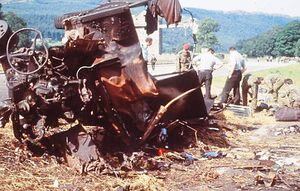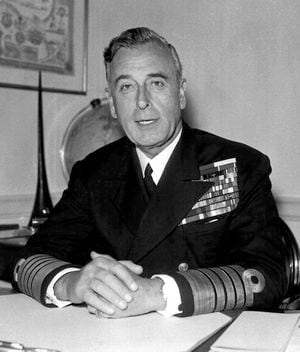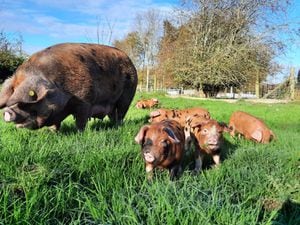The day darkness replaced sunshine
The final words of one of the victims was: “Isn’t this a beautiful day?”

Moments later a bomb hidden under the floorboards blew Shadow V to pieces.
It was August 27, 1979, the Bank Holiday Monday, and a day of carnivals, fetes, shows – and IRA mass murder.
Of all the dark days of The Troubles, this was one of the darkest.
The terrorists struck simultaneously against the royal family, the establishment, and the military, with the added bonus from their twisted point of view that most of the soldiers who died that day 40 years ago were from the 2nd Battalion of the Parachute Regiment.
News of the killing of 79-year-old Lord Louis Mountbatten, a cousin to the Queen and the uncle of Prince Philip, quickly reverberated around the world.
And just hours later, the IRA massacred 18 soldiers in a double explosion at Warrenpoint, inflicting on the Army their biggest single day loss during the entire Northern Ireland operation.
In the death of 40-year-old Lt Col David Blair the Army lost the most senior officer during The Troubles up till then.
There were other casualties on that terrible day who should not be forgotten.
Mountbatten was at the helm of his rickety old fishing boat as it left Mullaghmore harbour in County Sligo in the Irish Republic, where he was on holiday.
This was a jolly family boat trip, and they were going to check on their lobster pots.

He died when the bomb was detonated by remote control, along with his grandson 14-year-old Nicky Knatchbull and 15-year-old Paul Maxwell, an Irish schoolboy who was earning pocket money by helping out on the boat.
Dowager Lady Brabourne, Nicky’s 83-year-old grandmother, was critically injured and died later. The former Ludlow MP, Sir Jasper More, was her first cousin.
Another casualty was Twiga, a pet dachshund, killed instantly.
Nicky’s identical twin brother and soulmate Tim survived, grievously injured, along with his parents, and was later to write movingly about that fateful day.
He recalled that his grandmother Doreen Brabourne, who was known as Dodo, and his mother had their legs up in front of them in the warm sunshine, and Lady Brabourne, “a gloriously serene lady of Irish extraction,” turned to his mother and made her comment about it being a beautiful day.
In the boat that rescued her, and later in intensive care, Dodo said: “Never mind me, just look after the children.” She died the following morning in the bed next to Tim’s.
Tim’s mother Patricia, Mountbatten’s eldest daughter, was not expected to survive. Her face was held together by 117 stitches.
Among victims at Warrenpoint, Bill Hudson, 29, the son of one of the Queen’s coachmen, was on holiday in the Irish Republic from London, and was simply in the wrong place at the wrong time.
He was watching from the opposite shoreline when he was killed by Army gunfire.
The death of “Uncle Dickie” was an agonising blow to the royal family which hit Prince Charles, for whom Mountbatten had been a beloved mentor, particularly hard. On a personal level, he was close to the Queen and had championed the cause of Prince Philip, who was regarded with suspicion by the establishment, in winning the hand of the then Princess Elizabeth.
But he was also hailed as one of the greatest figures of the 20th century. He had earned a reputation for dash – and recklessness – as a destroyer captain during the early part of the war, before becoming supreme allied commander, South East Asia Command and, with General Slim, masterminding the defeat of Japanese forces in Burma.
In March 1947 Mountbatten became Viceroy of India with a mandate to oversee the British withdrawal.
The Warrenpoint attack had used classic terrorist tactics. The first bomb, hidden under hay on a lorry beside a road, killed six soldiers. More troops flooded to the scene and as evacuation began of the dead and injured a second hidden device went off.
Forty years on, the physical and mental scars left by that day endure.
But the peace process has brought a transformation in which there has been space for forgiveness.
In 2012, Martin McGuinness, a principal cheerleader for IRA murder, who allegedly gave the go-ahead for the assassination of Mountbatten, met the Queen in his role as deputy First Minister of Northern Ireland.
What would once have been thought unthinkable happened. Amid warm smiles, they shook hands.





